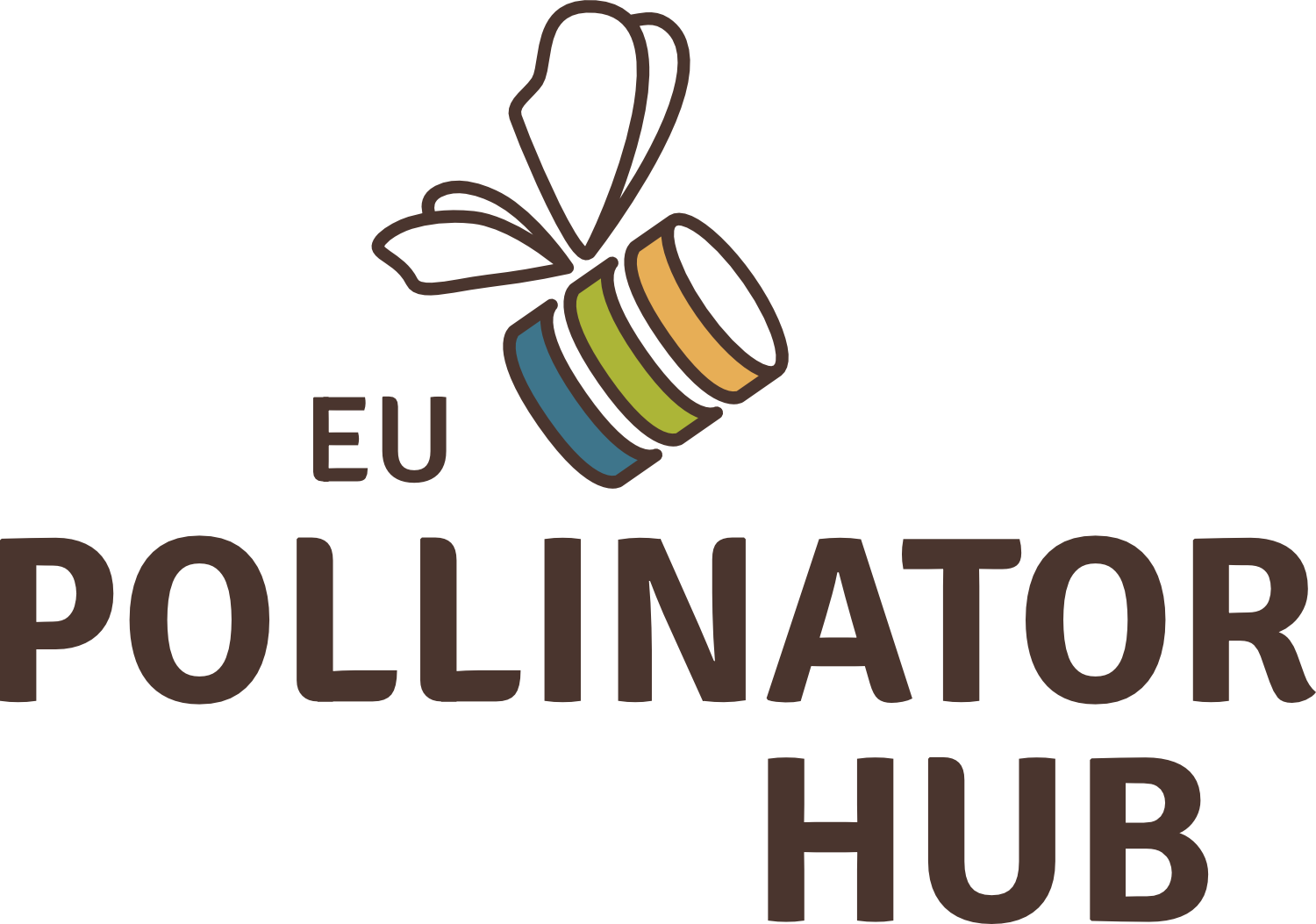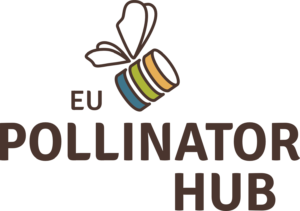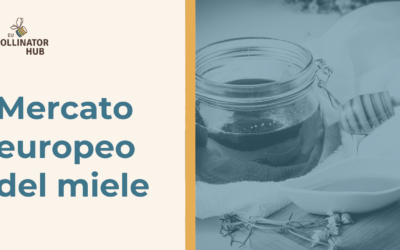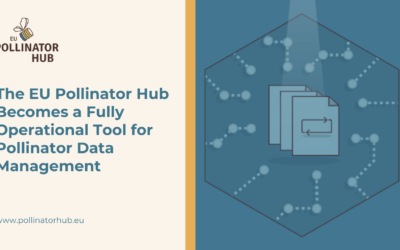Introduction
In the delicate tapestry of our ecosystem, pollinators play a crucial role in ensuring the reproduction of flowering plants, including many of the fruits and vegetables we rely on for sustenance. Recognizing the vital importance of pollinators, BeeLife European Beekeeping Coordination, with the support of the EU Bee Partnership and funding by the European Food Safety Authority (EFSA), has taken a significant step forward with the establishment of the EU Pollinator Hub. Formerly known as the EU Bee Partnership Prototype Platform on Pollinator Health and The Bee Hub, this innovative initiative is poised to revolutionise the way we understand, protect, and support pollinators through data centralisation, processing, and sharing.
The Hub is an unprecedented platform that centralises and processes data related to pollinators. It collects data from many different sources and transforms it into valuable and accessible information. Ultimately, the Hub will help us better assess the health of pollinators and their environments and create better strategies to tackle the challenges they face. The Hub has moved from the early stages of development and will be operational and accessible to the public in 2024.
A Transformative Approach for Pollinator Protection
Data and monitoring also play a fundamental part in restoration efforts. We need data to track environmental conditions and population trends of pollinators as well as the factors affecting them. These efforts are not only in the name of scientific knowledge but to fill the data gaps that affect our capacities to tailor and monitor the performance of public policies. Luckily, pollinators are also our allies regarding our need for data. For instance, bees have been deemed excellent biomonitors for decades. Understanding pollinators and the external factors that impact their populations and pollinating capacities is essential to safeguard a sustainable future.
Aligned with the need for communicable data, the EU Pollinator Hub actively addresses the multifaceted issues encountered by pollinators in their natural habitats. The hub’s core mission revolves around the collection, centralization, and interpretation of data to establish a comprehensive understanding of pollinator dynamics. Nevertheless, data standardisation poses a formidable challenge that the Pollinator Hub is working to address, necessitating rigorous data quality checks, curation efforts, and the application of FAIR principles to enhance data accessibility and reusability. According to the FAIR principles, data should be findable, accessible, interoperable, and reusable. The Hub aims to become the essential tool for all pollinator-related data to become FAIR.
Additionally, European values of union and cooperation inspire the Pollinator Hub. It works as a platform that allows the European community to work together to find common ways to gather, process, and share data related to pollinator health and pollination services. Such data extends from land use and management, bee mortality, flowering period evolution and much more. As a result, people from different backgrounds and sectors relating to pollination and pollinator health will have a digital space that makes it easier to clean and process their data, share it with the community, and help create new common standards. The Pollinator Hub grows daily by seeking new members to join the data-sharing community and becomes stronger thanks to the participation of data providers and users.
BeeLife European Beekeeping Coordination develops the EU Pollinator Hub in collaboration with ZIP Solutions, -a Slovenian SME specialised in developing digital solutions related to bees and beekeeping-, Visualife -an Austrian data quality management expert- and CRA-Wallonie -Belgian agronomical research centre- dealing with data standardisation, validation, processing and visualisation. The Pollinator Hub also counts with the support of an extensive network of stakeholders from the EU Bee Partnership, including beekeeping and farming associations, the plant protection products industry, bee scientists, environmental organisations, and veterinary associations and its development is made possible by EFSA.
Evolution & Development
The latest stage of development of the EU Pollinator Hub is the result of a continuous process that began in the proof of concept development during the Internet of Bees (IoBee) project, funded by European Commission Fast-Track to Innovation funding. Subsequently, the EU Bee Partnership provided greater support and thanks to initial funding by EFSA, BeeLife and consortium partners developed the Prototype Platform on Pollinator Health. In its most recent stage, the EU Pollinator Hub (2020-2024) is a groundbreaking project seeking a holistic approach to data processing and providing valuable information related to pollinators to all stakeholders. Building on the success and insights gleaned from the Bee Hub and the Prototype Platform, the EU Pollinator Hub expands its range of data providers and users.
Unveiling the EU Pollinator Hub
Mission and Vision
The EU Pollinator Hub is driven by a clear mission: to provide a never-before-seen online tool to store, process, centralise and visualise data related to pollinators. This dynamic platform strives to enhance the knowledge of a vast range of stakeholders in pollinator health. Data providers and users include farmer associations, beekeepers, phytopharmaceutical industry, environmental organisations, public agencies and institutions, among others.
All data sharing is preceded by tailored agreements that ensure privacy and data security protection. Ultimately, each data provider controls the extent of the visibility and use permissions of their own data. For instance, beekeepers sharing data on their colonies’ performance may choose to make his geolocalisation unavailable or blur the information by only allowing other users to see an estimated location.
Key Objectives
- Research and Innovation: The EU Pollinator Hub, in collaboration with a vast array of data providers, spearheads cutting-edge innovation to provide accessible information on the complexities of pollinator behaviour, ecology, and the factors contributing to their decline.
- Unleashing the power of data: The Hub recognizes the transformative power of data and actively seeks to raise awareness about the importance of common knowledge. Through workshops and outreach initiatives, the Hub inspires individuals, organisations and institutions to take tangible actions in enhancing our common knowledge of pollinator health by sharing data and avoiding silo storage and lack of communication.
- Collaboration and Networking: Serving as a central nexus for collaboration, the Hub fosters connections among researchers, organisations, and communities. By sharing knowledge and resources, the Hub amplifies the impact of individual efforts and creates a united front for pollinator-related data acquisition and communication.
Cutting-Edge Research Initiatives
In the quest to safeguard the invaluable role of pollinators, the EU Pollinator Hub takes a pioneering approach to data acquisition, integration, processing, and communication.
Data Acquisition:
The journey begins with the data sharing, a crucial step in expanding the Hub’s extensive database. Independent researchers, authorities, national or EU projects, producers of beehive or pollinator monitoring systems, farming or beekeeping associations, and data scientist collectives are among the diverse contributors. An agreement is forged, emphasising that the platform will exclusively process and visualise the provided data. Importantly, the original owners retain ownership, with the freedom to revoke consent for data sharing or visualisation.
Data Integration:
As new data becomes available, the Hub’s database expands to incorporate both static and dynamic datasets. Static datasets, offering one-time inputs, join dynamic datasets that continuously flow. An Application Programming Interface (API) facilitates periodic or live updates, enabling seamless integration, especially for digital monitoring systems installed in beehives. This automated transfer ensures a steady influx of valuable data to enrich the platform.
Data Processing and Communication:
The processed data takes centre stage, made accessible to the public through an interactive map on the platform’s website. This revolutionary tool empowers users to navigate a unique collection of pollinator health data, offering insights and understanding previously hard to attain. Beyond data exploration, users can leverage this resource to assess and strategically create solutions that minimise risks for pollinators. Looking ahead, the Hub plans to provide periodic thematic reports, further easing access to crucial information.
Addressing Existing Gaps:
Currently, data collection and storage lack a streamlined, centralised approach, with collaborations and data sharing lacking standardised methods. Despite stakeholders consistently gathering valuable information on pollinator health, a missing link prevents the seamless integration and public availability of this data. The EU Pollinator Hub prototype platform emerges as a response to this critical gap, introducing a transformative tool to enhance our understanding and decision-making for the benefit of pollinators.
Pollinator Hub Functionality: Environmental data surrounding a chosen location
Three Integrated Solutions in a Single Platform
The EU Pollinator Hub has three main features to facilitate access and interoperability of data. In its function as a vast repository, it makes it easy for anyone looking for data related to pollinators to find, explore and download data uploaded from different sources. Its ‘Dataset Discovery’ tool allows users to easily look and navigate through online data provided and made public by data providers. Select uploaded datasets are also integrated with visual elements such as graphs and interactive maps.
Also working to achieve new levels of data standardisation, the Hub allows users to navigate, discuss and suggest the definition of terms related to one or any dataset in its ‘Dictionary’ tool. Additionally, users are able to seek and propose translations of any terms, thus helping make all information accessible and operable in any context.
Finally, the platform’s crown jewel is the function to Upload Datasets, allowing any data provider to easily share their data, adding all relevant information, metadata, as well as controlling its visibility. Data providers are given full control of the extent of publicity of the data they upload in the Hub and they remain its sole owners.
Policy Advocacy: Catalysing Change on a Global Scale
Influencing Legislation
Acting as a catalyst for change, the EU Pollinator Hub collaborates closely with policymakers at local, national, and international levels. By providing evidence-based research and recommendations, the Hub contributes to the development of robust policies aimed at reversing the decline of pollinators.
Agricultural Practices
Sustainable agriculture is pivotal to the well-being of pollinators, and the Hub collaborates closely with farmers, agronomists, and agricultural policymakers. The Hub promotes knowledge exchange that supports both crop production and pollinator health through improved data collection and interoperability.
Collaboration and Networking: Forging Unity
International Partnerships
Acknowledging that pollinator conservation knows no borders, the EU Pollinator Hub, developed by BeeLife, actively collaborates with international organisations, research institutions, and conservation groups. By fostering global partnerships, the Hub ensures a coordinated and effective response to the challenges faced by pollinators worldwide.
Stakeholder Engagement
Engaging stakeholders is at the heart of the Hub’s approach. From farmers and beekeepers to businesses and policymakers, the Hub, developed by BeeLife, creates a network of diverse voices committed to the common goal of pollinator conservation. By building bridges between different sectors, the Hub maximises its impact and promotes a holistic approach to sustainability.
The Road Ahead: A Unified Call to Action
As we stand at the intersection of environmental stewardship, the EU Pollinator Hub is a unique platform for individuals, organisations, and policymakers to join and operate data in a streamlined and centralised fashion. By supporting data exchange and fostering community engagement through the platform, we can collectively improve our understanding and reassess our interactions with pollinators. The EU Pollinator Hub catalyses spread efforts in data collection and transforms it into valuable interoperable information for diverse stakeholders in pollinator health. The Hub is the missing nexus to bind a vast community collecting, using, and assessing pollinator-related data.
For more information and registration to become a data provider, please visit https://pollinatorhub.eu/. Or contact us at info@bee-life.eu




